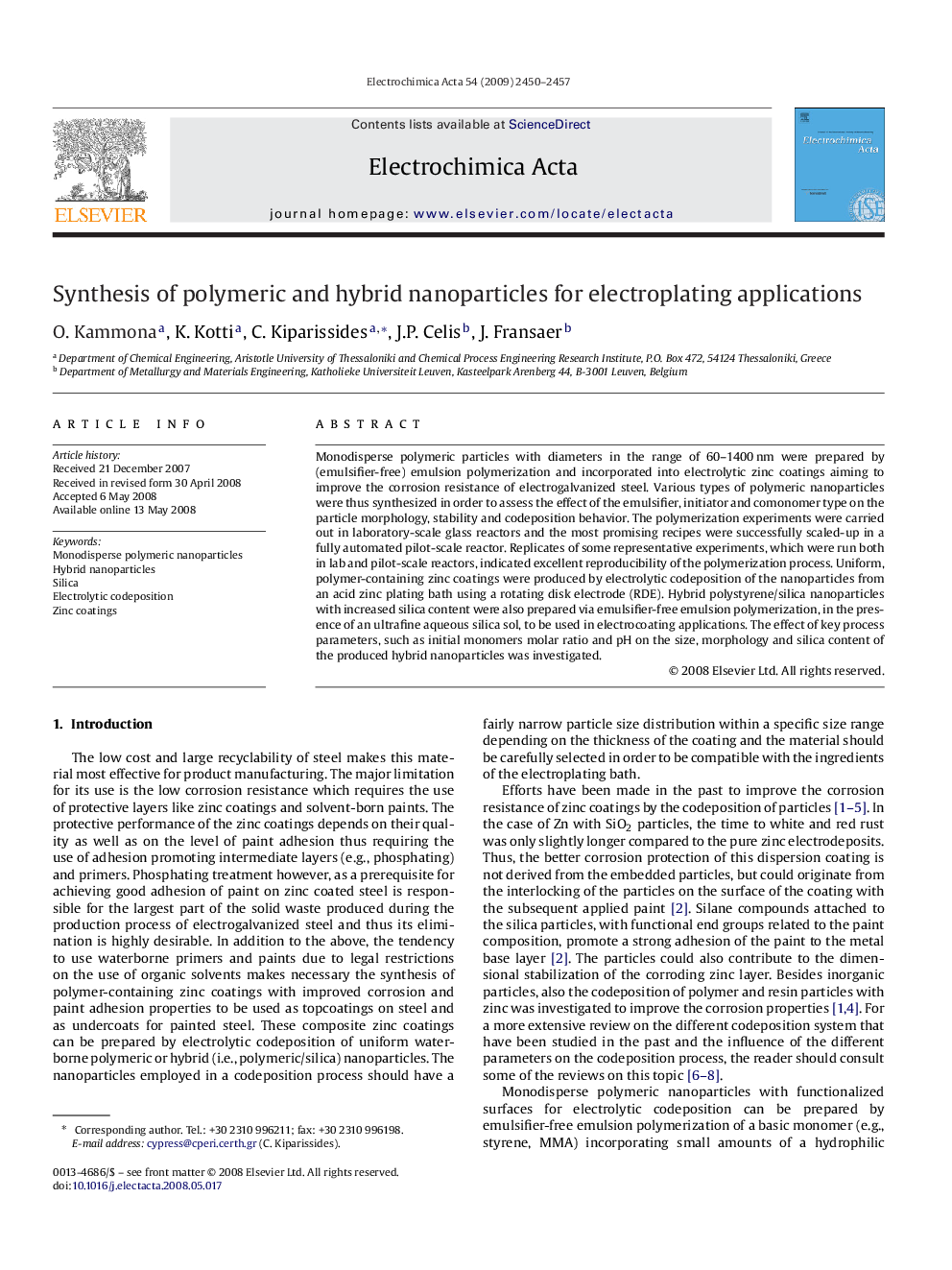| Article ID | Journal | Published Year | Pages | File Type |
|---|---|---|---|---|
| 194286 | Electrochimica Acta | 2009 | 8 Pages |
Monodisperse polymeric particles with diameters in the range of 60–1400 nm were prepared by (emulsifier-free) emulsion polymerization and incorporated into electrolytic zinc coatings aiming to improve the corrosion resistance of electrogalvanized steel. Various types of polymeric nanoparticles were thus synthesized in order to assess the effect of the emulsifier, initiator and comonomer type on the particle morphology, stability and codeposition behavior. The polymerization experiments were carried out in laboratory-scale glass reactors and the most promising recipes were successfully scaled-up in a fully automated pilot-scale reactor. Replicates of some representative experiments, which were run both in lab and pilot-scale reactors, indicated excellent reproducibility of the polymerization process. Uniform, polymer-containing zinc coatings were produced by electrolytic codeposition of the nanoparticles from an acid zinc plating bath using a rotating disk electrode (RDE). Hybrid polystyrene/silica nanoparticles with increased silica content were also prepared via emulsifier-free emulsion polymerization, in the presence of an ultrafine aqueous silica sol, to be used in electrocoating applications. The effect of key process parameters, such as initial monomers molar ratio and pH on the size, morphology and silica content of the produced hybrid nanoparticles was investigated.
